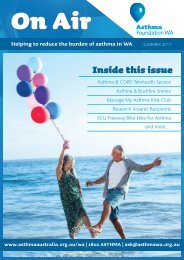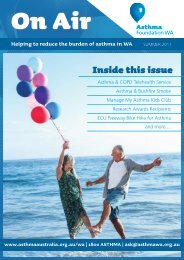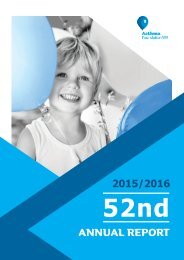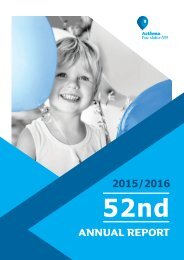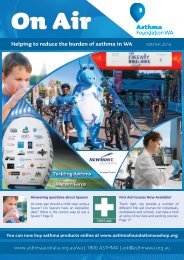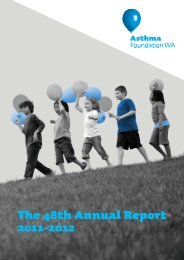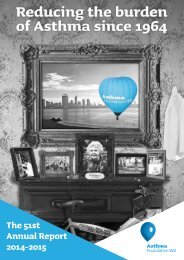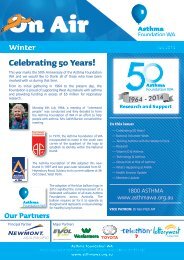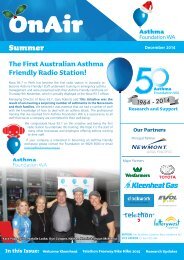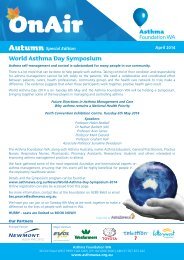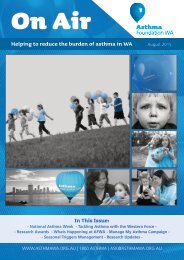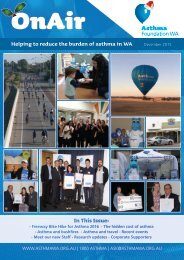SummerOnair_Online
You also want an ePaper? Increase the reach of your titles
YUMPU automatically turns print PDFs into web optimized ePapers that Google loves.
Asthma &<br />
Bushfire Smoke<br />
Prescribed Burning<br />
Smoke from bushfires and prescribed<br />
burning activities can be a major trigger for<br />
people with asthma and other respiratory<br />
conditions. It’s important to be prepared<br />
and know how to respond if you are exposed<br />
to smoke.<br />
Prescribed burning happens across Western<br />
Australia to reduce bushfire risk, manage native<br />
plants, and protect biodiversity in our parks and<br />
reserves.<br />
This generally takes place in autumn and spring,<br />
and only on certain days when conditions are<br />
suitable. In parts of the state, depending on<br />
seasonal conditions, burns can also happen at<br />
other times of the year. Presence of smoke from<br />
prescribed burns, generally, is in shorter duration<br />
than that of bushfires. To minimise the impact on<br />
people’s health and wellbeing during prescribed<br />
burns, consideration is given to the amount of<br />
smoke that will be produced, and the direction<br />
and area it will cover.<br />
What should I do?<br />
Tips to stay safe and well if there is bushfire smoke in your area:<br />
• Stay indoors when there is smoke (unless you are advised to evacuate); close all windows and doors<br />
and block air vents.<br />
• If you have an air conditioner, use it - set it to recycle, at home and in the car.<br />
• Avoid doing physical activity outdoors while smoke is around.<br />
• Continue using your asthma preventer medication as prescribed by your doctor.<br />
• Always have your asthma reliever medication (blue/grey puffer) with you, and use it as soon as you<br />
get symptoms - to prevent them from getting worse. If available, use a spacer as it helps get more<br />
medication into your lungs.<br />
• If your asthma reliever medication isn’t working, or needed every 2-3 hours or more, seek urgent<br />
medical advice by calling 000 for an ambulance.<br />
• If you don’t have your asthma medication with you, or you can’t access your house to get it, your<br />
community pharmacy can provide emergency asthma medication even if you don’t have a script or<br />
money to pay for it.<br />
• Older people, children, and those working at the fire front are most at risk, so be aware and if you<br />
notice someone having trouble access help fast.<br />
• If you don’t have an Asthma Action Plan, or are unsure what to do in an asthma emergency, follow<br />
the Asthma First Aid procedure found at: www.asthmaaustralia.org.au/wa/about-asthma/resources<br />
7




